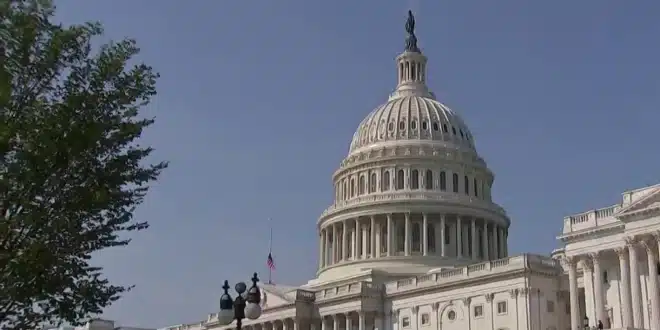US lawmakers are urgently trying to avoid a government shutdown as Donald Trump and Elon Musk have disrupted a bipartisan deal that would have secured funding well past Christmas.
With government funding set to expire at midnight, the House of Representatives, led by Republicans, must devise a temporary solution to replace the initial funding package, which seemed finalized before Trump’s intervention.
Without an agreement, federal agencies, national parks, and other services will start shutting down on Saturday, potentially sending up to 875,000 workers home without pay for the holidays.
Trump stated on social media that any shutdown should begin under the Biden Administration, deflecting blame and suggesting that Republicans might assist in resolving the issue if needed.
The urgency follows a tumultuous week in Washington. Republican House Speaker Mike Johnson introduced a massive funding bill loaded with unrelated expenses, which angered conservatives. Musk, appointed by Trump to oversee government spending cuts, spearheaded a campaign against the bill.
Trump then demanded a renegotiation to eliminate much of the extraneous spending and to suspend the country’s borrowing cap for two years, aiming to free himself from future debt negotiations. This move surprised Republicans, who scrambled to create a new, simplified package that could satisfy fiscal conservatives, Trump, Musk, and Democrats.
However, this effort failed, leaving Democrats feeling betrayed over the collapse of the bipartisan agreement and causing significant dissent within the Republican ranks.
Democratic House Minority Leader Hakeem Jeffries criticized the Republicans’ inconsistency on fiscal responsibility, while Vice President-elect JD Vance accused Democrats of attempting to shut down the government to thwart Trump’s agenda, despite Republicans holding the majority.
This marked a significant setback for Trump, who, along with Musk, had supported the revised funding plan. The White House’s Office of Management and Budget has begun preparations for a potential shutdown, and Republicans have yet to propose a clear path to passing a new funding bill.
Funding the government is always challenging, and the pressure is heightened this time as politicians failed to agree on full-year budgets for 2025 after months of negotiations.
Speaker Johnson has faced criticism for misjudging his party’s tolerance for the original funding bill’s costs and for being caught off guard by Trump and Musk. With Democrats controlling the Senate, they have little incentive to assist Republicans, insisting on voting only for the bipartisan package, leaving Trump’s party to navigate the issue alone.
Even if the House had passed the bill, it would have faced significant challenges in the Senate, where Democratic President Joe Biden opposed it.
Upon his return to office, Trump plans to implement tax cuts potentially reducing revenues by $8 trillion over ten years, likely increasing the debt without corresponding spending cuts. He has pledged not to cut retirement and health benefits for seniors, which constitute a large portion of the budget and are expected to grow significantly.
The last government shutdown occurred during Trump’s first term, from December 2018 to January 2019. The current turmoil also threatens Speaker Johnson’s position, as several Republicans have indicated they will not support him in January, potentially leading to another leadership battle just weeks before Trump’s inauguration.
 The Daily Star Ireland
The Daily Star Ireland

